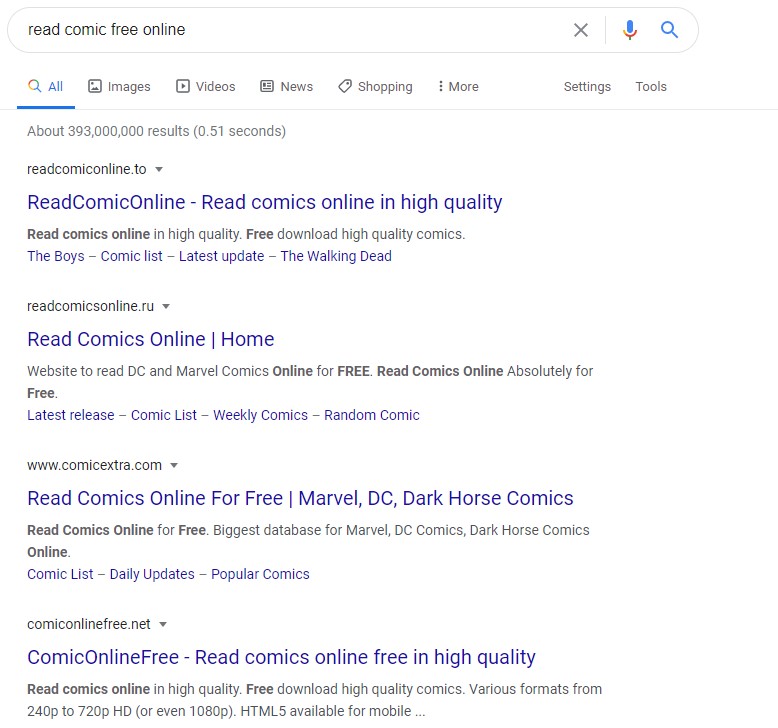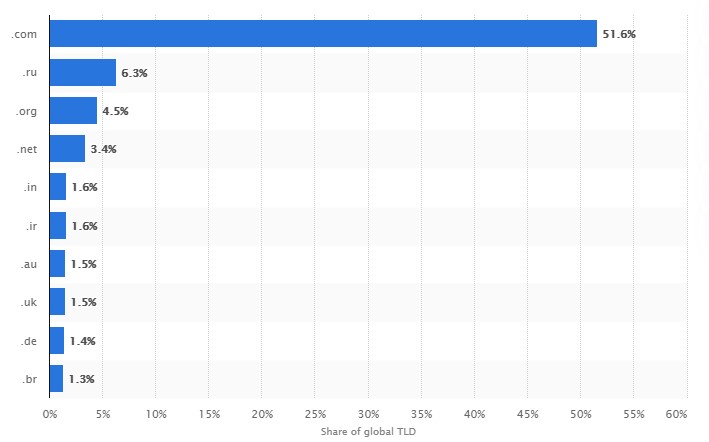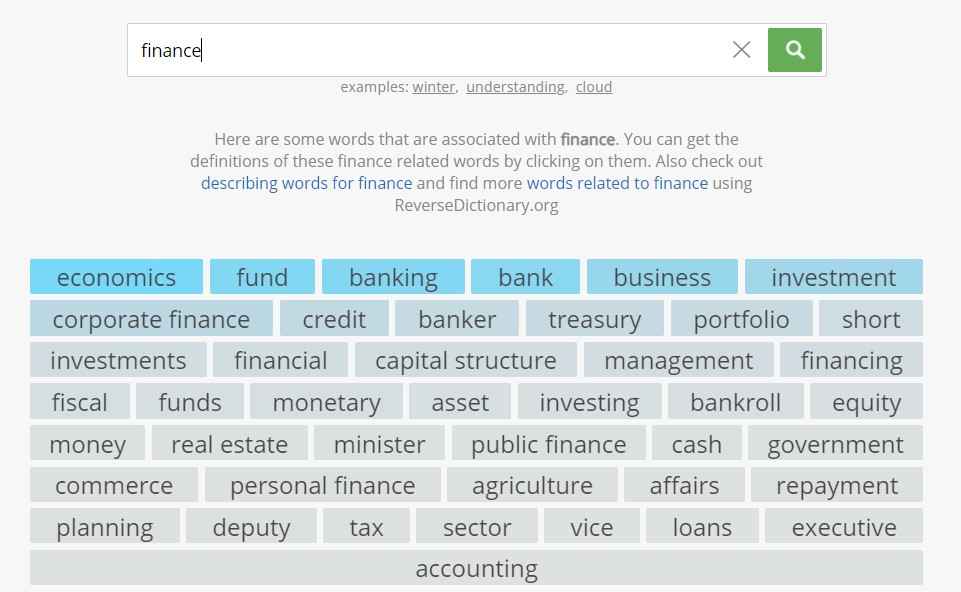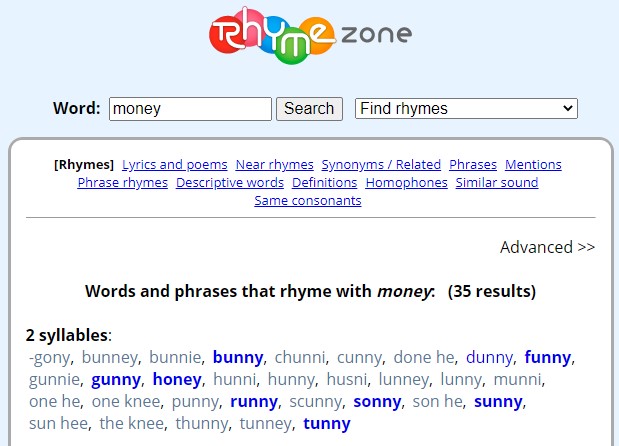Coming up with a perfect blog name is one of the most important things when creating a blog.
However, it’s not always easy to pick one. Countless great domain names have been taken, and you’re left with dull ones.
Therefore, in this blog post, we provide you with various tips to help you come up with a name for your blog within minutes.
Why do you have to pick a good name for your blog?
There are many advantages of having a good name for your blog, and the most obvious one is that it adds a layer of credibility to your blog.
By owning a great name, you establish a high level of authority and professionalism for people who visit your blog.
For example, look at these two blog names “foodblog123” and “foodblog.” Which one do you think it’s more professional and trustworthy? For us, it’s the second one.
Another benefit of having a great name is that it can immediately communicate your blog’s value to your visitors even if they don’t know anything about it beforehand.
Suppose you don’t know what Good Financial Cents is about, you can still guess that it’s a blog about managing finances.
How to choose a perfect blog name
Below are various tips that can help you choose a perfect name for your blog.
1. Make sure the domain name is available
Your blog name should be the same as your domain name (The name that appears in the address bar of your web browser). So, make sure it’s available.
You can use the Domain Name Search Tool to check for the availability of a domain name.
2. Resonate with your niche
Your blog name is the very first thing that many people will look at. Therefore, it would be best to pick a blog name related to what you will be writing about. Your visitors look at it and expect that they land on the right site with the right content.
Example: PinchOfYum is a food blog.
3. Including a keyword in your blog name is a good idea, but not required
There was a time that many people created websites with exact match domains to easily rank high in search results. This is because an exact domain name contains one or many keywords that match a search query. Google used to look at it as one of the significant factors in ranking a website in search results.

However, Google updated its algorithm a long time ago, and that time has passed. According to John Mueller’s statement from Google, a keyword in a domain name nowadays would not make a site rank better for that keyword.
So, why should you consider including a keyword in your blog name?
Even though having a keyword in the domain name doesn’t directly have SEO (Search Engine Optimization) benefits, it does play a role in the anchor text of the reference links to a website.
For example, when people link to the website “fitness.com,” the anchor text usually contains the keyword “fitness.” This tells search engines what the site is about and gradually rank it for that keyword.
In that regard, keywords in domain names can provide some sorts of SEO advantages.
Therefore, although it’s not required and doesn’t really have an obvious benefit to include a keyword in your blog name, it might still be a good idea to have one. However, don’t force it if you don’t want to.
Example: IAmAFoodBlog is the first search result for the query “food blog.”
4. Go with the extension “.com” if possible
According to Statista, the most popular domain name extension on the entire internet is “.com.”

Since “.com” is the most recognizable domain extension, go for it if you can. It will make your blog look more trustworthy.
If the “.com” version of your blog name has been taken, “.net” or “.org” are good alternatives. They are not as familiar, though.
Although “.ru” is the second most popular extensions, it’s Russia’s official domain and only ideal for Russian businesses. So, avoid using it.
5. Choose a short and memorable blog name
The name of your blog should be short and easy to remember. If your readers want to find your blog again, they can do it with ease.
So, how short should it be?
The answer is your blog name shouldn’t be longer than 15 characters. The reason is that many social networking sites like Twitter limit your username to a maximum of 15 characters. If you want to have the same name across platforms, pick a short one.
We didn’t pay attention to this at first and ended up naming our blog “TheCleverBusiness,” which contains 17 characters.
Don’t be like us!
Example: Amazon has 6 characters.
6. Avoid hyphens
Hyphen “-” is the only special character that you can put in your blog domain name.
However, the symbol not only adds an extra layer of complexity for people to enter your domain name, but it also makes your blog look less professional.
Therefore, we recommend avoiding hyphens at all costs.
7. Avoid numerical digits
For a similar reason, avoid using numerical digits in your blog name.
However, it’s fine to use numbers in text form like “one,” “two,” etc.
8. Use the correct spells of words
Misspelled words make your blog name harder to remember. What’s worse is that it can direct people to the wrong site.
For example, many people mistype gogle.com instead of google.com. Google decided to buy the gogle.com domain and redirect it to the main one to avoid users from landing on the wrong site. Although this is not a precise example of using wrong spells of words, you get the point.
9. Your personal name is fine
Before going into this, we have to admit that we don’t like the idea of using a personal name for a blog. It doesn’t give people any clue about what the blog’s content is. In addition, it’s harder to remember than a general name like PinchOfYum or IAmAFoodBlog.
However, a personal blog name does give you some significant advantages.
Firstly, you can establish yourself as a brand. Really, who doesn’t want the world to know their name? Using a personal blog name helps people remember who you are and what you’re good at.
Secondly, it gives your blog strong credibility. People will be more likely to look at your blog as a destination to learn new things from an expert or a friend rather than a soulless company trying to make money from them.
Therefore, using a personal name for your blog is absolutely fine.
Example: NomadicMatt is a popular travel blog owned by Nomadic Matt.
10. A niche name is good, but think it twice
A niche name creates a good impression on your visitors since it immediately tells them what your blog is about.
However, think twice before doing it. The reason is that as your blog grows and you want to write about another topic that isn’t directly related to your current one, people will find it weird. For example, it’s not suitable for a blog named “YummyFood” to have content about investing and savings.
Therefore, before using a niche name for your blog, ask yourself a question: will my blog extend to another topic in the future?
Example: Investopedia is a blog about investing.
11. Auto-generate a blog name
If you get stuck, try using a domain name generator tool like the one below. Just insert one or two keywords that relate to your niche into the blank field and let the tool suggest a wide variety of name ideas.
You might find some interesting names for your blog.
To quickly find related keywords to your niche, use RelatedWords.

12. Synonymize it!
A technique to come up with an interesting blog name is to use synonyms for your keywords. You can use Thesaurus or Merriam-Webster to do this.
For example, if you love the name “travelblog.com,” but it has been taken, try a synonym for the word “travel” or “blog” is a good way to go. It could be something like “trekkingblog.com” or “traveljournal.com.”
13. Rhyme it!
Rhyming is another technique to create an easy-to-remember and fun name for your blog.
Take the word “money” as an example and put it into a tool like RhymeZone. You can get back some cool ideas like “Money Honey” or “Money Buddy.”

14. Try acronyms
Many big companies abbreviate their full name, so it’s easier for people to remember. We also often call ourselves TCB instead of The Clever Business.
Example: NASA stands for The National Aeronautics and Space Administration.
15. Combine multiple words
Mixing words together can yield back some creative and catchy results.
Example: Facebook is a compound of the 2 words face and book.
16. Cut out parts of words
Another clever method to find ideas for your blog name is cutting out parts of words.
Take Lego as an example. The name ‘LEGO’ is created from the two Danish words “leg godt,” meaning “play well.”
Another creative example comes from Passio Coffee. The name is created by cutting the “n” character from the word “passion,” and its motto is “passion without end (n).”
17. Add a prefix or suffix
Prefixes like “a,” “the,” or “best,” and suffixes like “-ify,” “-er,” or “-ize” can create a unique name for your blog and make the name flow better when reading out loud.
Example: Spotify and Shopify are two big companies that use the suffix “-ify” in their name.
18. Everything is possible
Sometimes, it’s best to go all out and come up with a name that you love, even if it has nothing to do with your niche.
There are countless successful companies with names that are completely irrelevant to their expertise like Apple, Google, Amazon, etc.
19. Don’t worry about your blog name too much!
Your blog’s content is always the primary factor that defines your blog.
It’s true that your blog name is important. However, people don’t really care about the name of your blog that much. The most important thing for them is what they can learn from your blog.
So, don’t get too hung up on it.
Conclusion
It’s not always easy to come up with a perfect name for your blog.
There are many factors that you might have to look into before deciding on your blog name. Additionally, countless interesting and catchy domain names have been taken.
Hopefully, with various methods and techniques we have provided you in this post, you can come up with a blog name that you will never regret.
Useful Resources
- How to come up with infinite blog post ideas in minutes: If you get stuck coming up with new and popular blog post ideas consistently for your blog, check out our guide.
- Best blogging platforms to make money: Looking for the best blogging platform to start a blog and make money? Have a look at our detailed review.
- The definitive guide to making money blogging: Having a great blog with a perfect name and amazing content but don’t know how to monetize it effectively? We’ve got you covered!
The rightful owner of The Clever Business. I review & curate the leading suppliers so you don't waste time scouring the internet.




